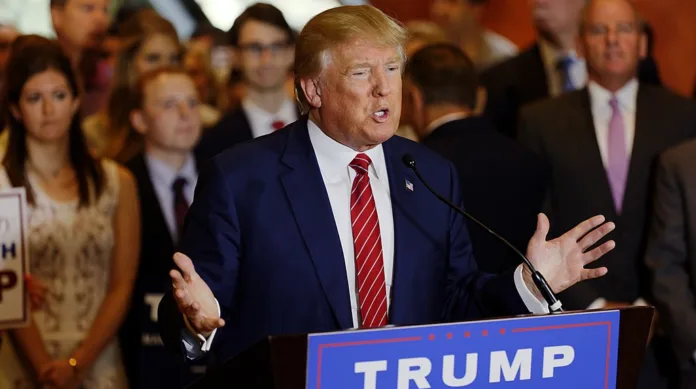House Republicans reject Trump-endorsed funding bill, igniting fears of an imminent US government shutdown as critical deadlines loom
US government shutdown news: The United States edges closer to a federal shutdown as the House rejects a funding bill backed by former President Donald Trump. The 174-235 vote on Thursday night highlighted divisions within the Republican Party, forcing lawmakers to race against the clock to draft an alternative plan before Friday’s midnight deadline.
The rejected bill, spearheaded by Republican Speaker Mike Johnson, proposed extending government funding until March 14. It also included billions in aid for disaster-stricken communities and provisions to suspend the federal borrowing limit for two years—a move aimed at stabilising the nation’s financial outlook. Despite its scope, 38 Republicans joined Democrats in rejecting the measure, showcasing significant dissent within GOP ranks.
“We will regroup and come up with another solution,” Johnson stated after the vote, attempting to project confidence despite the evident turmoil. However, the bill’s failure has left both the House and Senate in a frantic race against time to present a viable alternative to President Joe Biden for approval.
Donald Trump, who initially threw his weight behind the proposal, shifted his stance following sharp criticism of an earlier bipartisan draft. Labelling the bill a “Democrat trap,” Trump took to his Truth Social platform to warn Republicans against supporting any funding plan that failed to address the contentious issue of the federal debt ceiling. His pivot added to the chaos, with his influence pressuring lawmakers into deeper divisions.
The consequences of a government shutdown loom large. Essential federal programmes face suspension, with thousands of government employees, including military personnel, at risk of delayed pay. Critical services, such as disaster relief operations, may also face interruptions at a time when many communities depend on immediate assistance.
Embed from Getty ImagesAdding to the spectacle, billionaire Elon Musk emerged as an unexpected player in the unfolding drama. Musk openly criticised earlier bipartisan efforts via his X platform, labelling them as “terrible” and burdened with excessive spending. His comments emboldened far-right Republicans, some of whom speculated about Musk’s potential as a replacement for Speaker Johnson—a move that further highlights the internal chaos gripping the GOP.
The failed funding bill, in addition to its short-term spending provisions, included controversial measures unrelated to immediate budgetary concerns. These included proposed pay raises for members of Congress and clauses affecting investments in Chinese technology. The inclusion of these elements fuelled bipartisan scepticism, with critics labelling the package as both bloated and politically tone-deaf.
Democratic leaders wasted no time criticising the Republicans’ handling of the situation. House Minority Leader Hakeem Jeffries dismissed the plan as unserious, accusing “extreme MAGA Republicans” of steering the government towards an avoidable shutdown. “This is governance at its most reckless,” he added, pointing to the wider implications of a federal freeze on essential services.
The high-stakes standoff has also raised questions about Speaker Johnson’s ability to maintain control over his caucus. The rejection of the bill marks a significant setback for his leadership, with whispers of dissatisfaction among far-right factions already growing louder. The internal discord places Johnson in a precarious position, further complicating the path toward a resolution.
Meanwhile, the debt ceiling remains a flashpoint in the broader fiscal crisis. With the Treasury Department nearing its borrowing limit, extraordinary measures will soon be required to prevent a default—a catastrophic scenario that could ripple through global financial markets. The legislative gridlock now risks exacerbating this crisis, as both parties remain entrenched in their respective positions.
US government shutdown news: As the Friday midnight deadline approaches, millions of Americans brace for the impact of a looming shutdown. Lawmakers claim to be working tirelessly to prevent it, but deep political divisions leave little room for optimism. The threat of a government shutdown now feels increasingly inevitable.
